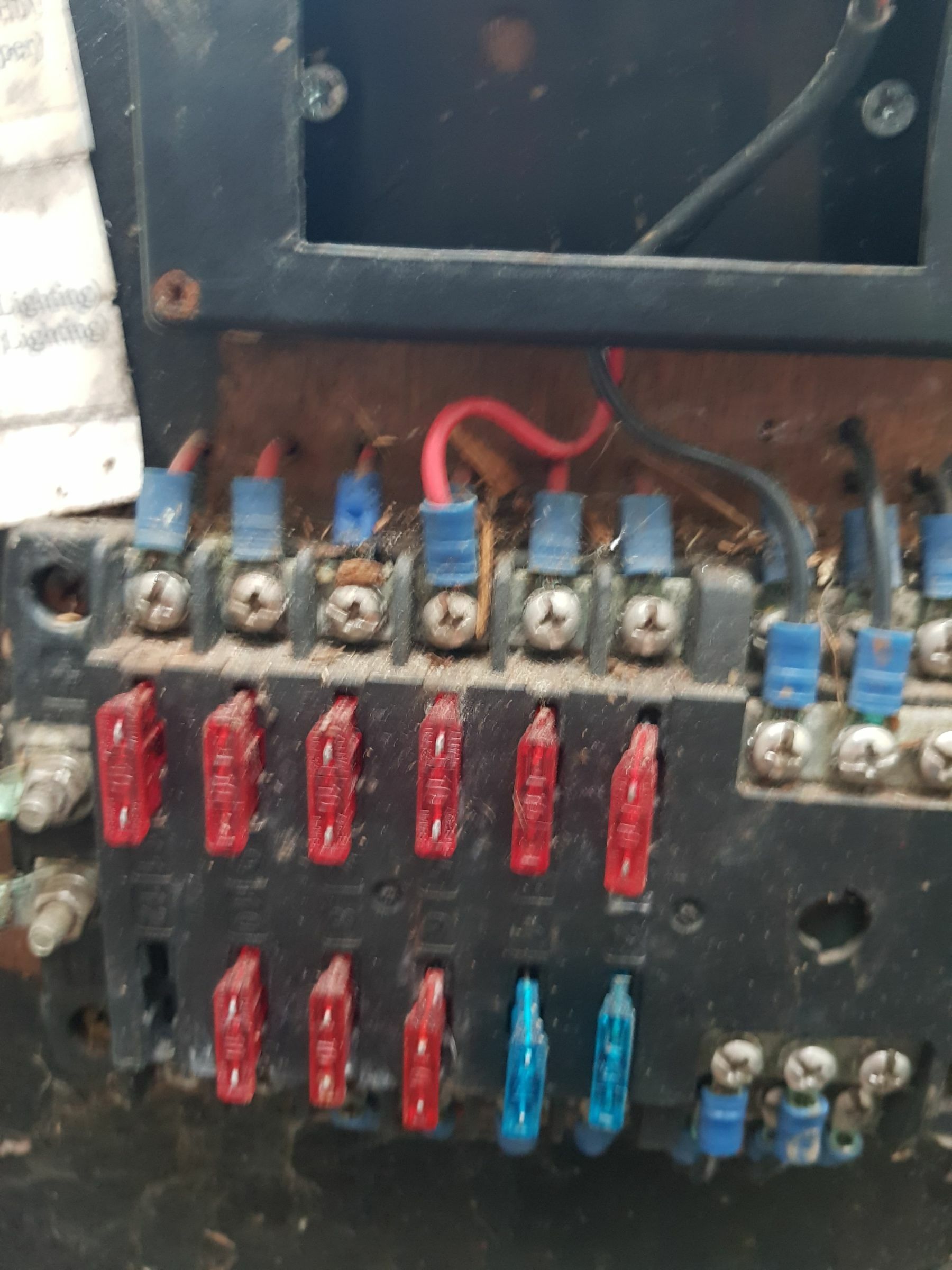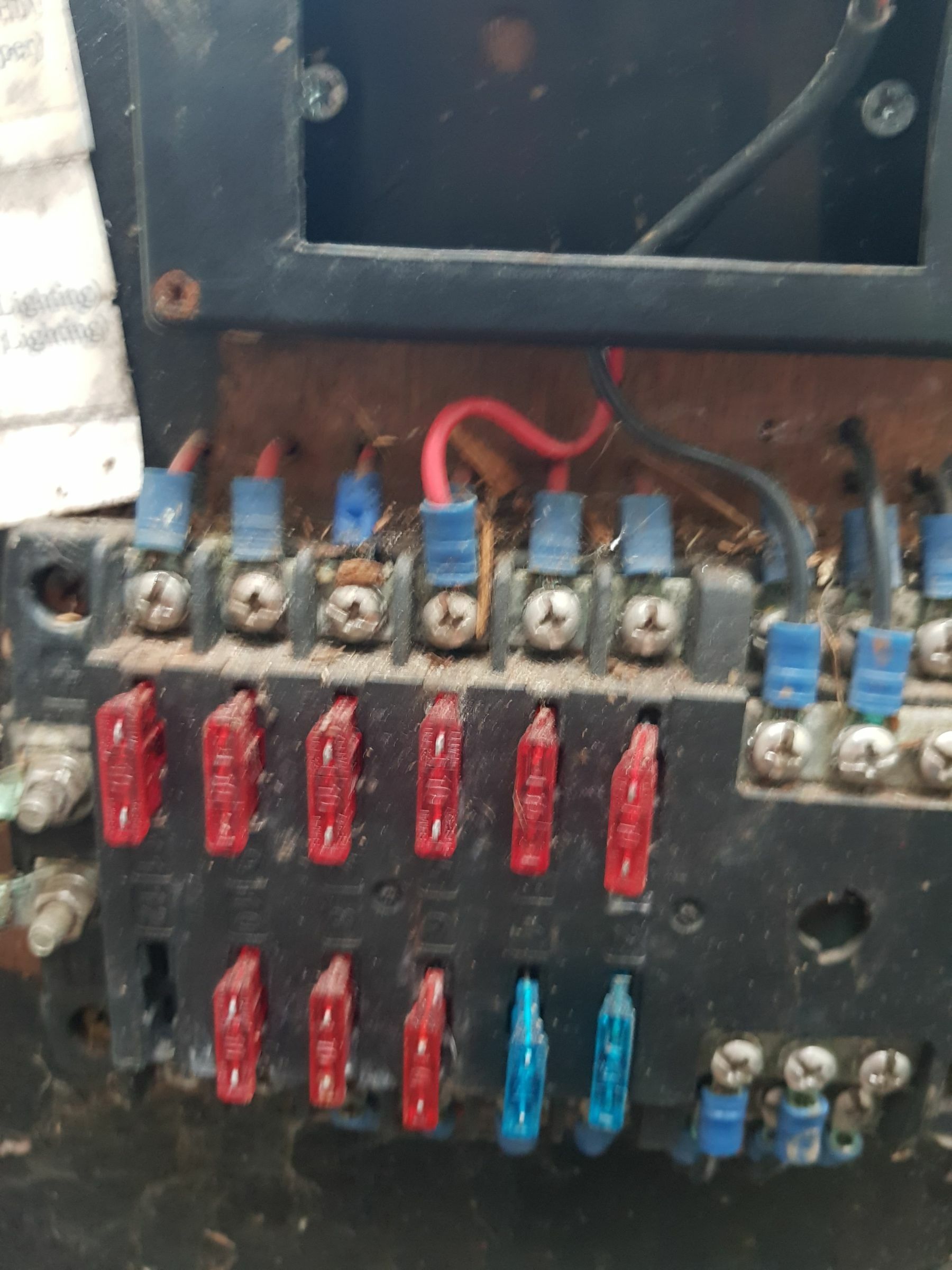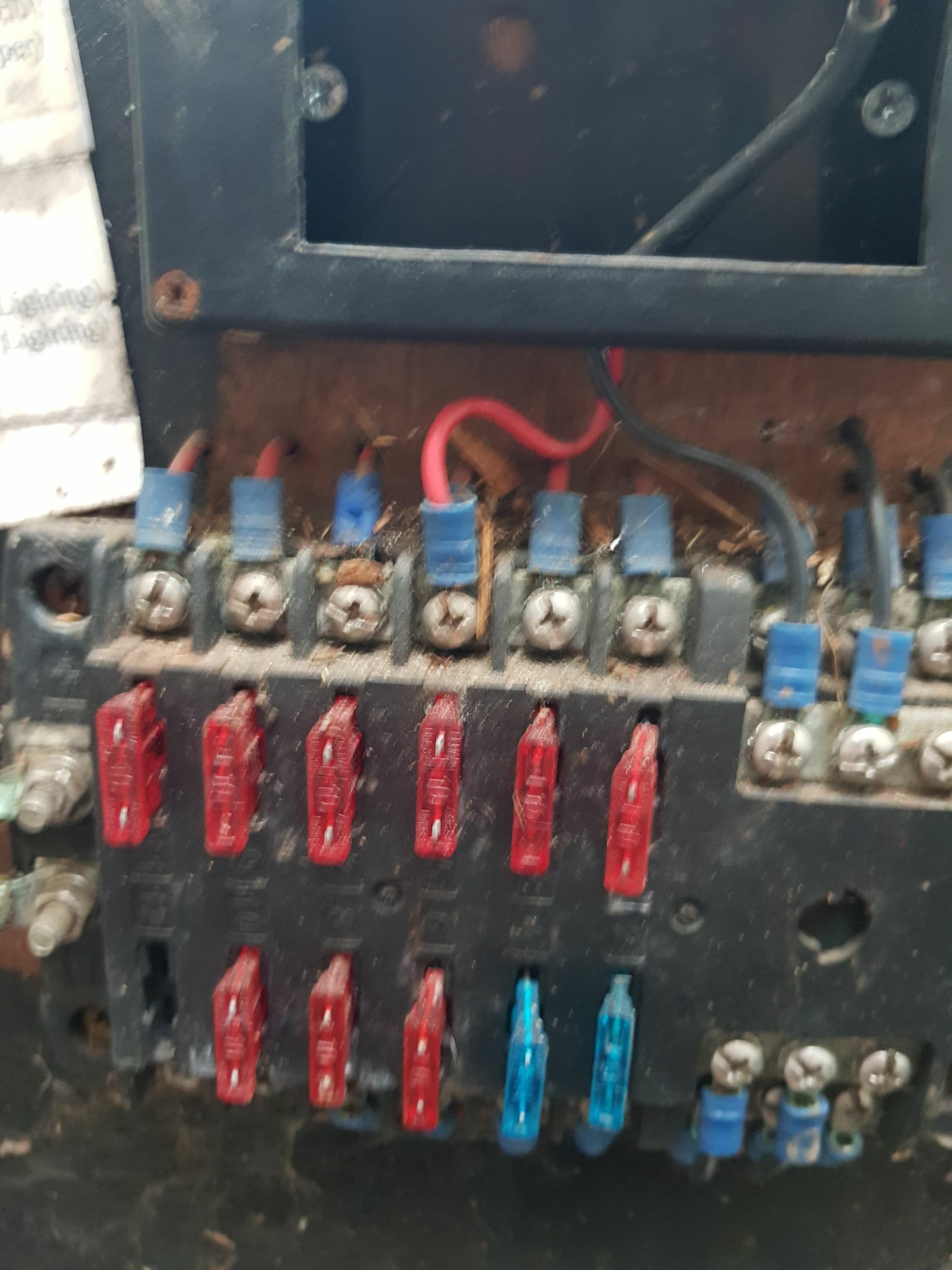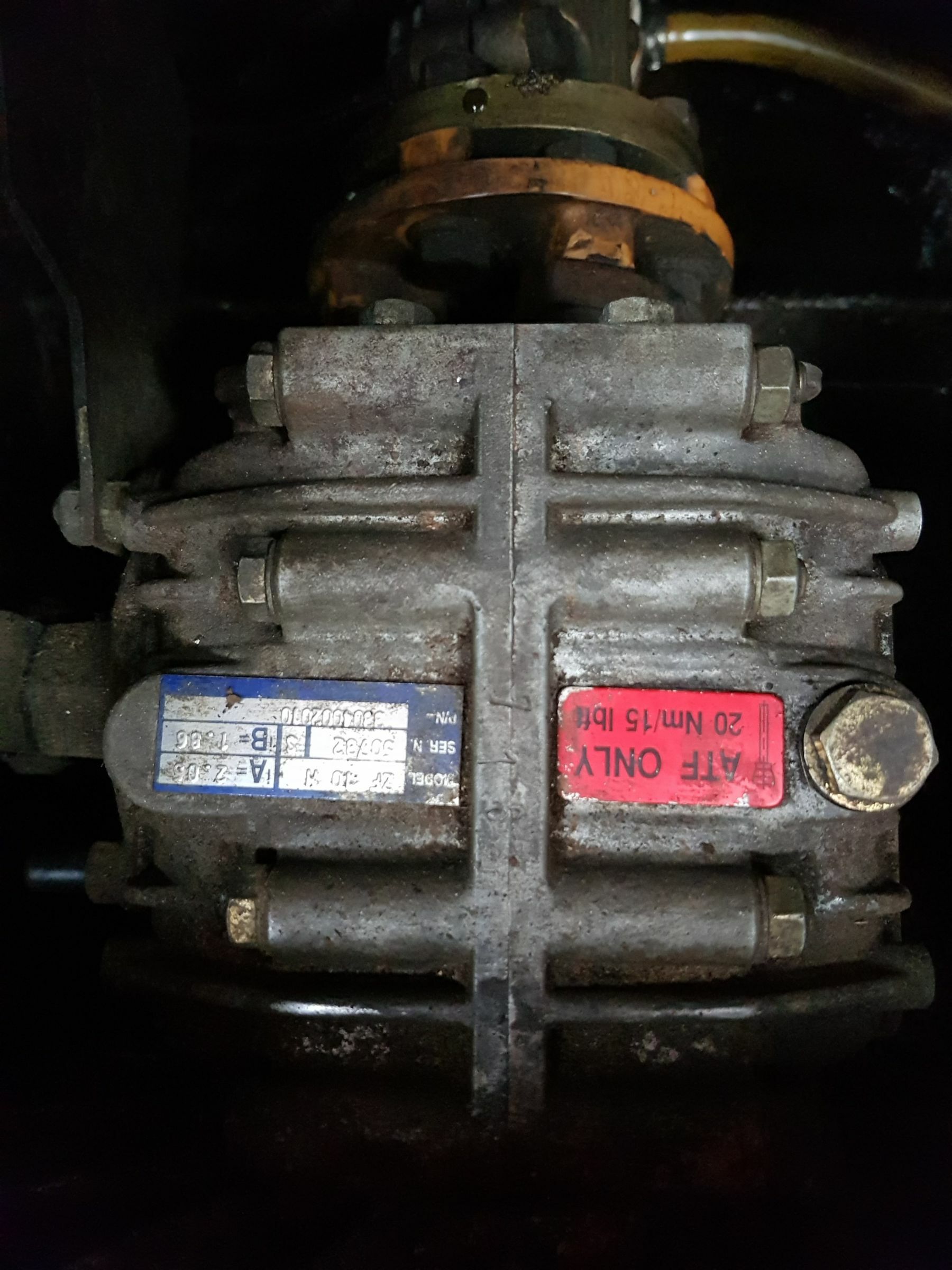

Janz
-
Posts
207 -
Joined
-
Last visited
Content Type
Profiles
Forums
Events
Gallery
Blogs
Store
Posts posted by Janz
-
-
2 minutes ago, Alan de Enfield said:
You may not allow the solder to wick down the wire, but many do (and don't know better) - even 'profesionally' installed cabling has it.
It is far too easy to get the solder to wick down and then you have a non-flexible conductor potentially flexing against the terminal 'ring'.
This is why ISO10133 "Wiring In Small boats:" stipulates that flexible cables must be used - soldering the end of the wires (can) results in 'solid conductors.
You appear to be suggesting that if you cannot see it it doesn't matter if it means the regulations or not.
Hopefully you will not take the same attitude on other aspects of the build.
No Alan, I will obviously see it because I'm installing it but nobody else will because it will be, for all intents & purposes, a sealed unit with a weatherproof cover & a connections diagram glued to the back.
Plus, it will be a professional job, both practically & aesthetically, unlike the grim looking home made obscenity that exists currently... if you'll forgive the pun.
My attitude to the rest of the build is mostly concerning fitting second hand salvage parts such as recycled wood panelling, a decent kitchen with a butler's sink & freestanding furniture from my house rather that the usual boaty stuff you usually see. I want some nice things that I can put in & take out as required. I'm going to fit a full sized wooden loft bed so I have plenty of storage space underneath for my record decks, records, amps & guitars. The bathroom will have a second hand, fully enclosed shower cubicle & tray. The lounge area will feature a futon so I can accommodate guests & my nice old oak folding table.
I have thought about this stuff, Alan. My attitude might be a bit rough 'n' ready to some purist tastes but there's a strong logical bent underpinning it...👍
-
3 minutes ago, Alan de Enfield said:
DO NOT SOLDER YOUR CABLES.
Solder in effect gives a solid conductor, which under vibration can break off and you end up with loose wires flopping about - it could even result in your dreaded fire.
Boat cables MUST be flexible and crimped under the regulations
I'm gonna fit a car or van fuse box eventually, Alan, with the wiring factory sealed & that way it won't be exposed to the elements or the examiner. Bear with me here. I will need a fair few spare connections for a stereo, some running lights, a few USB points & some other gubbins that I plan to add & space for stuff I haven't thought of yet.
Wanna future proof it...👍
-
4 minutes ago, IanD said:
A good idea if you can find one the right thickness/length with the right terminals on both ends. OK for one or two cables, not so easy for more...
Think mine all go to a rotary switch before the go to their respective gubbins like the starter motor etc, so I should be ok...👍
-
5 minutes ago, Tony Brooks said:
That is exactly why I used the battery posts with a stud built in, so I could then use a decent eye terminal. Even with a welding torch with a small nozzle it is difficult to make decent joint and that is before worrying about the melting insulation.
Think mine have 'eyes' for bolt connections.
-
14 minutes ago, IanD said:
And that is precisely the problem with heavy cables and connectors -- which is why crimped connectors are used.
It's very easy to produce a solder joint -- for example, heavy cable into a battery tab connector -- which looks fine from the outside but isn't inside, especially for inexperienced people or those with inadequate soldering tools/experience. Fine for Tony who knows what he's doing, but a recipe for a bad connection in the hands of others.
A crimped connection (assuming decent quality components and tools) is more consistent and much less reliant on the skill of the electrician and inspection afterwards.
Again, I'd probably opt for an automotive part from a breakers yard that has been factory soldered rather than messing about with a blowtorch near a bunch of batteries. How much for a length of battery cable from a scrappie? A pound? Two? Doing it yourself probably isn't worth it.
-
6 minutes ago, TheBiscuits said:
Edited that slightly Tony. It's a crucial point, and it's worth making the extra effort to get good ones - the mixed boxes from the pound shop aren't worth even considering.
Looks tidy and well crimped to me. Might need dusting though.

Labelling would be good too, but that isn't a bad example of boat wiring at all. If it doesn't look like 30 snakes having an orgy it's in the top quarter of marine installations!

Seriously? That wouldn't pass muster with me. I'd like to fit an automotive numbered fuse box with a decent waterproof lid & all the wires already factory attached & solder the connections further up the loom. Should address any vibe probs & probably less than a crimp kit & tool if I get one from a scrappie. There is a numbered key but you can't see it in the shot. It's a white piece of paper with the fuse ratings & what they're for 😬
-
2 minutes ago, Tony Brooks said:
and buy some top quality crimp terminals if you can find them.
I agree that a professional standard crimp done with a decent tool and decent terminals is probably as good as a solder one, but even then it can go wrong (see below). Also an amateur solder joint with inadequate equipment is likely to do as Jen says and wick down the wire so it becomes solid - that is even if the solder had "whetted" the complete joint properly, but if you know what you are ding that should not happen.
Many years ago a terminal suppliers rep kept onto me to swap from solder to crimp terminals. I was resistant because we never seemed to have the problem Jen described and I was worried about damp wicking into the crimp causing corrosion, This rep kept on and insisted his crimp was as good as my solder joint so we got a length of cable, he crimped one end and I soldered. then we got the terminals in pliers and had a tug of war. His crimp just pulled out. He then grabbed the cable and pulled again. The conductor snapped. He never badgered me to go t crimps again.
On the question of bullet connectors, I learned to hate the things on old cars in the 70s. It is too bad cleaning corrosion off the bullet but trying to clean the receptacle is another matter.
Haha..! I always thought that a properly soldered joint is stronger than the wire itself. Never been a fan of crimps or those hideous scotchlock connectors. They not only look ugly & unprofessional but they hold moisture & dirt.
-
25 minutes ago, Jen-in-Wellies said:
Properly done crimp connections are superior to soldered connections on a boat. Solder can suffer from fatigue cracking from the sort of vibration that happens on a boat with the engine running. In addition, the residue from flux can corrode the cable strands under the insulation, out of sight. There are lots of different fluxes around. Generally, the more effective they are as a flux, the worse they are for subsequent corrosion. Use correctly sized crimp connectors for the wire and a proper crimp tool. Borrow, beg, buy, steal the crimp tool, rather than try and wing it with something else, or cheap and nasty.
Soldered battery connections for the battery cables are allowed by the BSS though, as well as crimped. However, they are difficult to make reliably without the right equipment, due to their size and weight. Heating them up hot enough to get good solder wetting, without melting off all the insulation is tricky. What isn't allowed here are screw connections. See section 3.4.1 of the BSS requirements (private boats) in the link that was given.
It might be the correct way for boats but look at the state of this. A chimp could've done a better job. Plus I do all my electrics on my custom bikes & I prefer solder, shrink & properly fixed terminals. I see what you're saying about vibes but I assure you boat wiring doesn't have anywhere near the same stresses as a motorbike wiring loom. It's enclosed & dry for a start, it floats on water so doesn't deal with potholes or wheelies or mud, road salt, grime, rain, wind, 100 mph speeds & jet washing...
Upload failed on the pic... hold on.
-
9 minutes ago, haggis said:
Not sure these two statements sit well together 🙂 . The BSS is as much to protect other boats as well as the one being examined and removing things which might be a fail and then replacing them after the examiner has gone is still leaving the risks. Ok you will have your bit of paper but your boat and others might still be at risk.
Well yeah but this is very much work in progress. I don't need the gennys for everyday running & I don't need a fridge either. The way I see it, I only have four months to get everything done before the current BSS runs out. I'm not gonna rush to shove in a bunch of appliances before the BSS is due. I'm simply going to remove what doesn't need to be there - tools & equipment & the fuels & oils for them. Hopefully by then I'll have some money to buy some decent appliances, not the brown & tan 1970s fridge & a camping gaz burner & heater.
-
3 minutes ago, Stroudwater1 said:
Just a small point, and not trying to be picky, apologies and welcome, but generally you steer or navigate and then moor a boat up, drive and parking is a pastime for other vehicles. Some refer to boats as she though that seems to be a dying use of language these days?
Obviously take care with the petrol generators. Thankfully fires are pretty rare. You may need more than one CO meter, theres plenty on here about them and CO with stoves.
Enjoy your boating
PS Gas fridges are usually OK, the great advantage being no battery use as they do drain power. Your boat must have passed BSS with that installed before?
Yeah, sorry I'm a bit new to this stuff & I don't use the parlance unless I get reminded. My pal is ex RN & he calls the toilet 'the head' even in his house. The fridge was given to me. It works but isn't plumbed in so I will just move it before the BSS.
Thanks...👍
-
5 minutes ago, Tony Brooks said:
The two fuse things sounds very suspect. Batteries are usually paralleled unless you are running 24 volt so you only need one fuse in the main domestic feed.
I'll head down there in a bit, Tony. I'll take some photos, so please let me know what yo think. They are blade style fuses in their own holders. I'm going to fetch both batteries back home anyway & charge them with my battery charger. I had to disconnect my solar panels during the storms last week & the batteries are needing some love.
-
8 minutes ago, Chewbacka said:
BSS Requirements for Fire extinguishers, fire blanket and CO alarms etc are from page 46 in the BSS checklist that the examiner will use.
They are also strict on petrol and generator storage etc, which is also in the checklist.
It is not the easiest document to read, so if you get confused (I did the first time I read it), just ask on here and someone will answer.
The BSS is generally NOT negotiable, so as an example, even if you have brand new, very expensive fire extinguishers, if they don’t have the specified marking, they will fail.
Cool, I'm not looking forward to the BSS, so thanks for posting this up. Hopefully by June all the work will be done but even if it isn't I'll get everything off the tub that might be suspect before the examiner comes on board, including my gas fridge that I was already warned may be a no no. I don't want to fail. I want everything above board. 👍
-
Just now, Tony Brooks said:
Just to point put that IF - note big if - the wirirng is properly sized and fused with nice neat and secured battery cables the chances of an electrical fire is very low. As a temporary measure why not roughly calculated the maximum current you are likely to need before sorting the electrics out and fit a fuse lightly larger in the main feed to the domestics. Close to the batteries but not in any battery box. In fact there should be one there already but I bet the majority of older boats were never fitted with one. I used a megafuse.
I did check that & there are two fuses for both leisure batteries. However, all the connections to the main fuse box have been crimped on & I don't like that. I plan to get all that sorted with solder & shrink & some decent bullet connectors for anything that may need to be moved or replaced like I'm used to working on motorcycle looms.
-
Looooool, I mean when I'm out on a trip like when I bought it & had to drive it back home... 😂
I was nearly asleep standing up by the time I parked it after the stretch from Uxbridge to Brentford though. That Hanwell flight doesn't take prisoners when you're on your own.
-
1 minute ago, Tracy D'arth said:
In the event of a fire on a boat, leave the extinguishers where they are and GET OUT.
I have an extra, more than specified, CO2 extinguisher which I would use as an exit tool in my run to the nearest door/window for egress.
Aye, fair point. But if it kicks off when you're driving it might mean swimming for it.
I'm just worried about wiring faults for the most part 'cos my boat needs all that stuff tidying up both in the cabin & the engine bay. Plus, I'm going to be using some power tools with a genny. My neighb had an arson attack when she was away from the boat, so extinguishers wouldn't help with that either but what else can you do? I only sleep on my boat when I'm on the move but it's piece of mind I'm after & I'd kick myself all over town if I couldn't put out a small fire 'cos I didn't have the kit...
-
43 minutes ago, Tony Brooks said:
Often on gearboxes you will find the length of the thread is very similar to the gap between full and the bottom of the dipstick. When that is the case you don't need to screw it back in. Just take the bottom of the dipstick as full. probably more applicable when checking the level rather than topping up.
Thanks Tony...👍
-
I spoke to my boatie neighbour at length yesterday about all things boating & her experiences living aboard, legal stuff & also about the fire that nearly forced her to give up life on the water. That bit really got me thinking. I have loaded up my entire collection of powder fire extinguishers in the boot of my car. The very last thing anyone wants on a boat is fire. I have a stove but it isn't set up yet because I don't know where I'm going to place it until I get some furniture in there. I use a small gas burner for soup, tea & coffee & a gas heater & I have two small petrol generators. I'm going to put two each side of the stern deck, two in the cabin & two at the bow. I don't know if having them will swing the BSS in June but I'm not doing it for them, I'm doing it for me. I have also nabbed two battery smoke alarms & a carbon monoxide detector from my house too. As a newbie boater I think that aside from a lifejacket which I still don't have, it's the next best thing I can do for my on board personal safety...👍
-
8 hours ago, The Happy Nomad said:
I used to touch the dipstick on some paper towel.
Top tip, thanks... It always pays to ask for help even if you think you know what you're doing...👍
-
13 hours ago, StephenA said:
And a matching nut on the bottom which, if you can get a wide shallow container under, you can use to drain the oil - just don't do it when it's hot!
Thanks, sound advice. I can probably just about get a frying pan underneath now that I've cleaned out the forty year old thick bilge scum from under the engine.
I have no idea what constitutes that gunk apart from oil, grease & water but it has really preserved that part of the hull. Bizarre. I s'pose it could be that the water floats on the oil or that it has been starved of oxygen or maybe new steel has been welded in?
9 hours ago, Ianws said:Drained mine with a Pela pump. Remember to screw the bolt down when checking the dipstick under it rather than just letting it rest on top. From memory it's hard to see the atf fluid on the dipstick, a shining light might help help.
Ah, good... I didn't know that. My Honda motorbike engines are the opposite 👍
-
14 hours ago, Bod said:
There may be a dip-stick under the brass bolt head, rather than a "level" hole.
Bod
Thanks Bod.
13 hours ago, Tracy D'arth said:It is a dipstick under the large nut.
Cheers Tracy.
-
35 minutes ago, Pie Eater said:
Pela pump or similar will do the job.
Cheers mate...👍
-
Can't see how to get a drain pan underneath... it's not a pump out job is it?
-
Been cleaning out my engine bay & trying to ignore my gearbox but it wants its ATF changed. I'm assuming it's like a normal 'box procedure wise - drain, fill 'til the ATF runs out of the bolt hole on the side but I thought I'd best check with you guys first...
Hold on & I'll shrink a pic & post it up here.
Sorry it's upside down...
-
22 minutes ago, MtB said:
Indeed they are, but a lot of boaters feel the way you expressed it and one, once in a while, decides their boat is their castle and CRT can spin on it.
I once saw a pub owner's boat being craned out by CRT, after he decided he didn't need a licence, could moor on his pub water frontage and there was damn all CRT could do about it other than keep writing the threatening letters, which all went in the bin with a smile.
And there have been cases where the police has assisted with eviction, pre-craning. Once the police get involved, I don't think one stands a prayer of winning.
I have video footage of a boat being craned out by CRT at Greenham Lock Marina. It was placed on the back of a huge extending flatbed lorry & driven away. The whole operation took less than thirty minutes.





Fire extinguishers...
in New to Boating?
Posted
It's a floating building site at the moment. I don't have the genny on the boat when its running. I keep it on the boat because I'm working on it pretty much every day & I don't wanna keep lugging it in & out of the boot of my Benz, where it would be an even bigger hazard. I'm on a very limited budget but the main point is to get the boat through the BSS that runs out in June. Sorry, I should have made that clear. It's not like other boats, it's a floating shell. All I really need to do is get the wiring sorted for the BSS because there's nothing else on board currently that should trouble them - no gas appliances aside from an old fridge that isn't connected. The plumbing has been sorted & so has the engine & bay. Just need it to pass it's MoT & then I can concentrate on fitting it out & furnishing it...👍